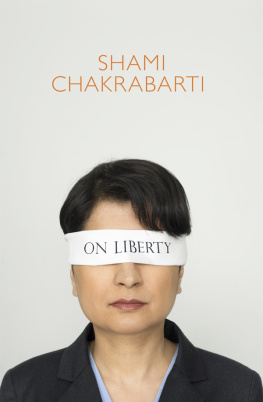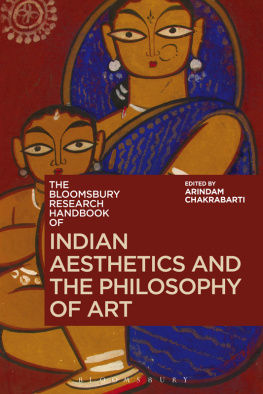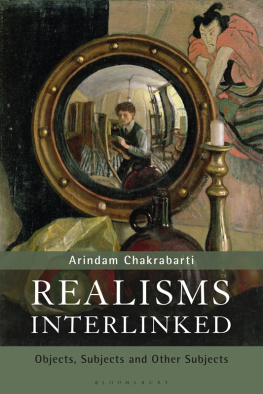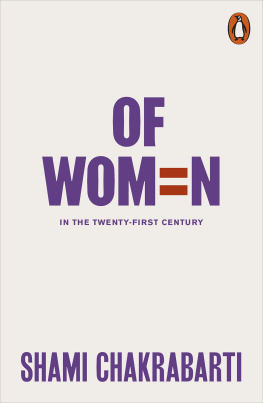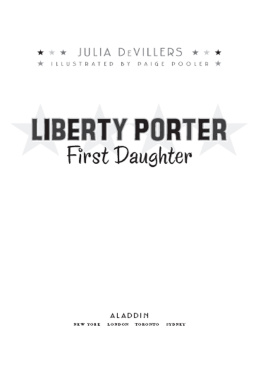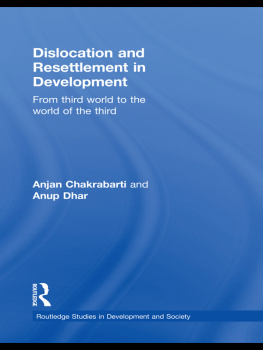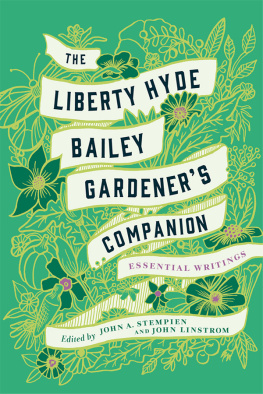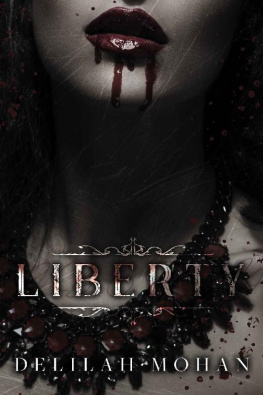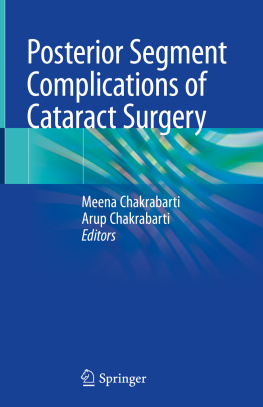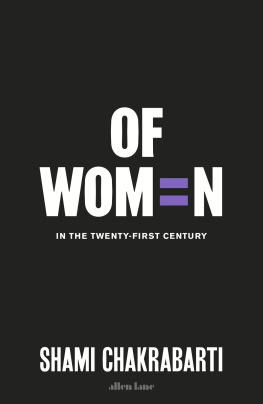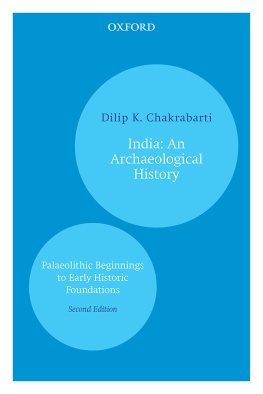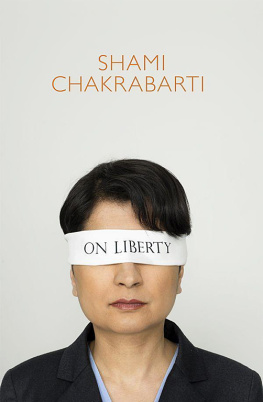Chakrabarti - On Liberty
Here you can read online Chakrabarti - On Liberty full text of the book (entire story) in english for free. Download pdf and epub, get meaning, cover and reviews about this ebook. City: London] UK, year: 2014;2015, publisher: Penguin, genre: Politics. Description of the work, (preface) as well as reviews are available. Best literature library LitArk.com created for fans of good reading and offers a wide selection of genres:
Romance novel
Science fiction
Adventure
Detective
Science
History
Home and family
Prose
Art
Politics
Computer
Non-fiction
Religion
Business
Children
Humor
Choose a favorite category and find really read worthwhile books. Enjoy immersion in the world of imagination, feel the emotions of the characters or learn something new for yourself, make an fascinating discovery.
- Book:On Liberty
- Author:
- Publisher:Penguin
- Genre:
- Year:2014;2015
- City:London] UK
- Rating:5 / 5
- Favourites:Add to favourites
- Your mark:
- 100
- 1
- 2
- 3
- 4
- 5
On Liberty: summary, description and annotation
We offer to read an annotation, description, summary or preface (depends on what the author of the book "On Liberty" wrote himself). If you haven't found the necessary information about the book — write in the comments, we will try to find it.
On Liberty — read online for free the complete book (whole text) full work
Below is the text of the book, divided by pages. System saving the place of the last page read, allows you to conveniently read the book "On Liberty" online for free, without having to search again every time where you left off. Put a bookmark, and you can go to the page where you finished reading at any time.
Font size:
Interval:
Bookmark:

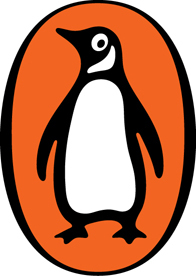

Published by the Penguin Group
Penguin Books Ltd, 80 Strand, London WC2R 0RL , England
Penguin Group (USA) Inc., 375 Hudson Street, New York, New York 10014, USA
Penguin Group (Canada), 90 Eglinton Avenue East, Suite 700, Toronto, Ontario, Canada M4P 2Y3 (a division of Pearson Penguin Canada Inc.)
Penguin Ireland, 25 St Stephens Green, Dublin 2, Ireland (a division of Penguin Books Ltd)
Penguin Group (Australia), 707 Collins Street, Melbourne, Victoria 3008, Australia (a division of Pearson Australia Group Pty Ltd)
Penguin Books India Pvt Ltd, 11 Community Centre, Panchsheel Park, New Delhi 110 017, India
Penguin Group (NZ), 67 Apollo Drive, Rosedale, Auckland 0632, New Zealand (a division of Pearson New Zealand Ltd)
Penguin Books (South Africa) (Pty) Ltd, Block D, Rosebank Office Park, 181 Jan Smuts Avenue, Parktown North, Gauteng 2193, South Africa
Penguin Books Ltd, Registered Offices: 80 Strand, London WC2R 0RL , England
www.penguin.com
First published 2014
Copyright Shami Chakrabarti, 2014
The moral right of the author has been asserted
Lines from Big Yellow Taxi by Joni Mitchell reproduced by kind permission of Alfred Music.
Every effort has been made to contact copyright holders.
The author and publishers would be glad to amend in future editions any errors or omissions brought to their attention.
Cover photograph Paul Stuart
All rights reserved
ISBN: 978-1-846-14810-1

Let the conversation begin...
Follow the Penguin Twitter.com@penguinukbooks
Keep up-to-date with all our stories YouTube.com/penguinbooks
Pin Penguin Books to your Pinterest
Like Penguin Books on Facebook.com/penguinbooks
Find out more about the author and
discover more stories like this at Penguin.co.uk
For my son the Bean
This book has been a dozen years or perhaps a lifetime or several in the making. It is my story and the story of Liberty (the National Council for Civil Liberties, NCCL) in the difficult and soul-defining decade or so leading up to its eightieth birthday. It is also more than this. On Liberty is an attempt to explain both the values and some of the important struggles of so many people who believe in the precious treasure of fundamental rights and freedoms that binds people and democratic societies together. From 9/11 to unprecedented state surveillance and attacks on the Human Rights Act; my leap from the Home Office, to the birth of my son and death of my mother. This is an account of my personal and political journey.
These are challenging times for human rights. The ill-judged and misnamed War on Terror has morphed into a permanent state of exception becoming the rule. This has been triggered not only by horrific crimes against people and the terror of collapsing towers but by collapsing markets, economies and institutions. No one is above the law. Yet some have readily decided that the rule of law is too exacting and human rights principles too expensive in times of insecurity and austerity.
As I write, some senior figures in the Conservative Party and the UK Independence Party that has so tweaked its tail propose abolishing the Human Rights Act and withdrawing from the European Convention on Human Rights. They are wrong. This is written as much for you (if you prove open or curious enough to dip into it) as for any of us. Our responsibility is to previous generations who fought for rights and freedoms and to future ones, for whom we hold them in trust.
At Liberty House in Westminster, I have the privilege of working with the kindest, cleverest and most creative young professionals. We always say that reading sympathetic newspapers while listening to chattering radio and sipping a fair-trade organic brew is all very well in the kitchen on your own time, but campaigning it is not. Human rights sceptics and critics have had undue influence over the last few years and that has been reflected in the media and in government policy and rhetoric. It is exactly these naysayers that we must persuade that far from being trivial luxuries to be sacrificed in times of strife, our small bundle of non-negotiable freedoms upheld by the rule of law is essential to everything that makes our lives worth living from protection against torture and the right to a fair trial and private life to freedoms of conscience, speech and association. Lawyers can number, translate and contest the application of our rights to particular circumstances. But these values can be summed up by three little words: dignity, equality and fairness. These are the ideas from which our various human rights flow and for reasons this book explains, the greatest of these is equality.
Liberty was formed in 1934 in an ostensibly very different world. There was no internet, CCTV or DNA profiling. However, everyone had recent experience of the horrors of war. Many endured genuine economic hardship. The far right was gaining ground and national newspapers regularly voiced their disgust at the arrival of refugees from Eastern Europe. But the particular jolt for Libertys founders was seeing hunger marchers from the North of the country meeting an especially brutal reception at the hands of the Metropolitan Police in Londons Hyde Park in November 1932. The marchers brought a petition a million signatures strong and protested against a 10 per cent cut in unemployment benefit and the means test imposed the previous year. Whats more, they had been infiltrated by undercover police acting as agents provocateurs, inciting demonstrators to violence so as to justify a violent police response. In the intervening years some things have changed for the better and some not nearly enough.
Our founders formed the National Council for Civil Liberties to keep watch over the entire spirit of British liberty. Today they might have blogged and tweeted this resolve. After their inaugural meeting on 24 February 1934 in the crypt of St Martin-in-the-Fields in Trafalgar Square, they announced their new organization in a letter to the Manchester Guardian. The signatories included Clement Attlee, Vera Brittain, H. G. Wells, Edith Summerskill MP and the first Secretary of the NCCL, Ronald Kidd. Kidd was a civil servant, journalist, publisher and even actor before finding his place in the world as a civil liberties campaigner. He and a small group of brave people of values and ideals set in motion a campaign which would become the oldest human rights group in the UK.
After the Second World War freedom struggles around the world found international solidarity and intellectual cohesion within the framework of the 1948 Universal Declaration of Human Rights. The UDHR is a global expression of rights to which all humans are inherently entitled. Regional and local documents followed, including Churchills legacy, the European Convention on Human Rights. This is an essential text that I came to know as a law student in the early 1990s when human rights were an almost exotic international study option. I applied it later as a government lawyer in the Home Office while advising on and defending decisions, policy and legislation in the European Court of Human Rights (ECtHR). You might say that I am a Jedi Knight who began on the dark side of the force.
Font size:
Interval:
Bookmark:
Similar books «On Liberty»
Look at similar books to On Liberty. We have selected literature similar in name and meaning in the hope of providing readers with more options to find new, interesting, not yet read works.
Discussion, reviews of the book On Liberty and just readers' own opinions. Leave your comments, write what you think about the work, its meaning or the main characters. Specify what exactly you liked and what you didn't like, and why you think so.

